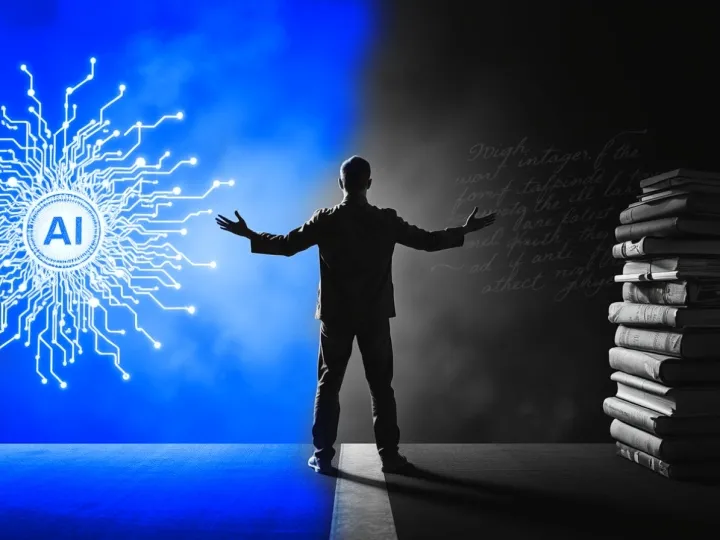Metacognition, often described as the ability to reflect on and regulate one's own thinking, is widely believed to be a cornerstone of academic success. For years, educators and psychologists have argued that students who plan, monitor, and evaluate their learning effectively should outperform those who do not. However, new research from a UK university challenges this longstanding assumption. In a study involving 132 Engineering and Data Science students, researchers found no evidence that self-reported metacognitive ability predicts academic performance. Instead, a different factor emerged as the strongest indicator of achievement: how students believe they perform relative to their peers.
The study drew on well-established metacognitive scales, including the Self Reflection and Insight Scale and the Metacognitive Awareness Inventory, both of which are widely used to assess how individuals perceive their cognitive habits. These tools measure components such as awareness of one's thinking, the ability to evaluate one's learning strategies, and the capacity to adjust those strategies. Participants also completed a subjective social comparison measure in which they placed themselves on an academic "ladder" relative to other students in their cohort. By pairing these measures with actual grades, the researchers sought to determine whether students who reported stronger metacognitive abilities achieved higher academic results.
Contrary to expectations and decades of theoretical grounding, the metacognition scores showed no meaningful association with academic grades. Bayesian post-hoc analyses provided substantial evidence supporting the null hypothesis, indicating that metacognitive skills as self-reported by students did not explain differences in performance. This result surprised the research team, who noted that prior studies have often linked metacognitive ability with enhanced learning outcomes across a variety of education levels. The findings suggest that while students may believe they are reflective, strategic learners, those beliefs may not translate into tangible academic success.
A different picture emerged when the researchers examined the subjective social comparison measure. Students who ranked themselves as high performers relative to their peers tended to earn higher grades, and those who ranked themselves lower generally performed less well. This self-evaluation correlated strongly with academic outcomes, suggesting that students possess an intuitive sense of their standing even if their formal self-assessments of metacognition do not align with their grades. Interestingly, the strongest pattern was a cluster of students who performed far below average but still placed themselves above the midpoint of the scale. No student in the study rated themselves at the lowest position, even though some received failing grades.
These findings raise several possibilities about the nature of self-assessment and academic performance. One explanation is that students rely on social cues rather than introspective ones to judge how well they are doing. Peer discussions, shared feedback, and exposure to others' work may offer clearer signals of academic standing than internal reflection on study habits. This may be particularly relevant in fields such as engineering and data science, where collaboration, group projects, and problem-solving sessions are integral to the curriculum. In such environments, students may develop a more accurate sense of their understanding through comparison with others, rather than through metacognitive analysis.
Another possibility is that metacognition, at least as measured by self-report scales, may be inherently flawed. Students may not have the introspective accuracy to evaluate their cognitive strategies in a way that meaningfully reflects their learning behavior. Some may overestimate their abilities due to confidence biases, while others may underestimate their competence because of anxiety or perfectionistic tendencies. Additionally, the students in this study were likely already high-functioning learners, given the academic demands of engineering and data science programs. If the entire sample possesses relatively strong metacognitive skills, the lack of variability would make it difficult to detect meaningful correlations with grades.
The timing and context of metacognition measurement also matters. Students may believe they engage in reflective or strategic learning, but those beliefs may not hold during high-pressure moments such as exams or deadlines. Metacognition measured at one time point may not capture how students adapt their strategies throughout a term. Moreover, the study did not track how metacognitive behavior changes as students confront different academic environments. Some students might improve their self-regulation after early setbacks, while others remain static despite increased awareness.
Despite these complexities, the clear relationship between subjective performance ranking and actual grades highlights an important psychological pattern. Students appear to have an implicit sense of their academic standing, one that may draw on social, emotional, and environmental information rather than formal introspection. This form of self-knowledge, even if imperfect, may be more immediately connected to real-world outcomes. The researchers stress that this does not mean metacognition is irrelevant to learning, but rather that self-reported metacognition may not capture the processes that truly support academic performance.
Viewed through the lens of Seven Reflections' Dimensional Systems Architecture (DSA), the findings illustrate the difference between internal appraisal and field-based cognition. DSA posits that human performance emerges from interactions within a cognitive field rather than from isolated internal processes. In this study, self-reported metacognition reflects an inward-looking assessment, disconnected from dynamic external structures. In contrast, subjective academic comparison reflects the student's position within a broader cognitive and social field. This external relational measure aligns more closely with actual performance, suggesting that students gauge their ability not solely through internal reflection but through resonance with their academic environment. The data support the idea that cognitive accuracy often arises from alignment within a system, not from introspection alone.
The study complicates the traditional narrative linking metacognition to academic success. It suggests that educators may need to rethink how they teach students to self-regulate and how they encourage self-assessment. While reflection and planning remain valuable, they may not provide the complete picture of what drives performance in rigorous academic settings. Understanding one's standing in relation to peers, cultivating accurate calibration, and responding to social and academic signals may play a larger role than previously recognized. The findings underscore the importance of integrating both internal awareness and relational context in models of learning, opening new avenues for research and educational design.






